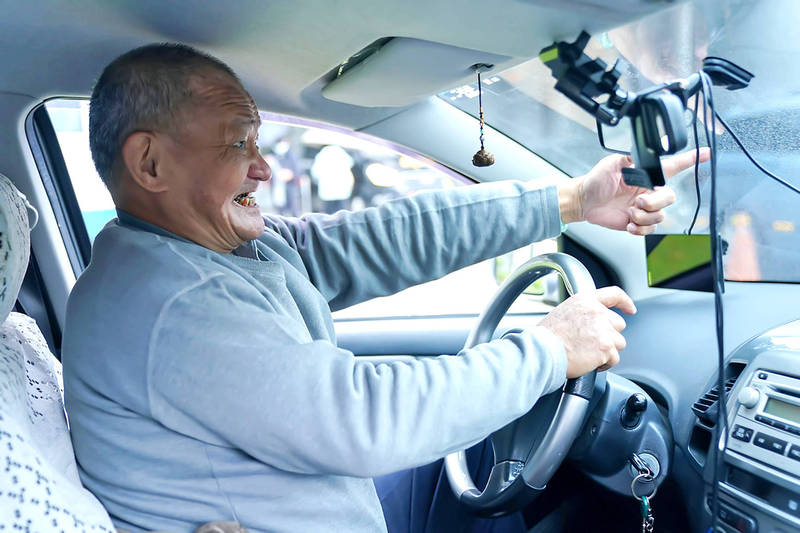《TAIPEI TIMES》 Doctors discuss how to cope with holiday stress

People make a toast over dinner at a restaurant in Taipei’s Ximending on Lunar New Year’s Eve on Friday. Photo: CNA
GLOBAL PHENOMENON: The most common causes of holiday depression are a hectic schedule, having too much food and alcohol, and not getting enough sleep
By Huang Tzu-yang, Jonathan Chin and Jake Chung / Staff reporter, with staff writers
Doctors shared tips for reducing stress over the Lunar New Year holiday, as the festivities can result in sleeplessness or episodes of depression or anxiety for some people, while road rage is also an issue.
Holiday depression is a global phenomenon and is not unique to East Asia, said Chen Chang-sheng (陳長聖), an attending physician at Taiwan Adventist Hospital’s Department of Psychiatry, adding that Westerners most commonly experience the syndrome over Christmas.
The most frequent causes of holiday blues include having a schedule that is too busy, binging food and alcohol and not getting enough sleep, as well as stresses such as dealing with elders who ask too many personal questions, Chen said.
Keeping a normal sleep-wake cycle throughout the spring vacation can prevent exhaustion-related stress, and people with insomnia or anxiety should avoid mahjong or other intense games associated with Lunar New Year gatherings, he said.
People should not stop exercising entirely on vacation, but 30 minutes of moderate exercise is enough for an endorphin boost, Chen said, adding that psychiatrists recommend exercising at least three times a week.
Breathing exercises and meditating for 15 minutes a day also lessen stress, he added.
Eating a healthy diet rich in vegetables and good fats, while not consuming excessive amounts of alcohol and meat, can help with sleep, he said.
People who feel ill at ease when interacting with older family members can manage stress by preparing for answers beforehand, and reminding themselves that their probing questions are usually not asked with bad intentions, Chen said.
Elders who genuinely care about the well-being of the younger people in their families can be treated as fonts of experience and wisdom, while braggarts should simply be ignored for peace of mind, he said.
Separately, Taipei Tzu Chi Hospital doctors offered suggestions for people prone to road rage during the holiday.
Lee Chia-fu (李嘉富), a doctor in the Department of Physical and Mental Health, said that road rage is medically considered to be a type of intermittent explosive disorder (IED).
People can try breathing exercises to calm their nerves and reduce stress, Lee said, adding that research has proven that music — especially songs with a slow tempo, bass notes and no lyrics — can helps reduce stress.
People are diagnosed as having IED if they become irrationally angry — such as cursing at or physically assaulting others over minor incidents — more than three times a year or more than two times a week for more than two months, he said.
While they might feel happy after acts of violence, the “anger attack” usually only lasts 30 minutes or less and is followed by feelings of guilt, Lee said.
IED could be related to issues with the amygdala or the prefrontal lobe of the brain, he said.
People with IED are usually unaware that they are exhibiting symptoms of the disorder and instead think they are simply hard to get along with or have a bad temper, or, in some cases, that they are experiencing the effects of menopause, he said.
Lee urged people to avoid allowing friends or family to drive if they are known for impulsive behavior or bursts of emotion.
People with IED should try to see things positively, and when they encounter triggers, they should give themselves 10 seconds to calm themselves, he said.
Lee also urged family members to try to strike up a conversation with the driver to draw their attention away from whatever is triggering them if they notice that they are angry, anxious or experiencing an extensive range of emotions.
新聞來源:TAIPEI TIMES





















